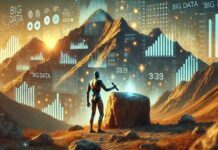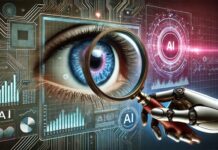In an era where technological advancements are rapidly transforming every aspect of our lives, education stands as no exception. Artificial Intelligence (AI), once a realm of science fiction, has emerged as a formidable tool in revolutionizing the landscape of learning. From personalized tutoring to adaptive assessments, AI is reshaping how students engage with educational content. As we delve into the myriad applications of AI in education, it becomes evident that its integration is not merely a trend but a paradigm shift with profound implications for the future of learning.
The Current Landscape of AI in Education
Artificial Intelligence has permeated various facets of the educational ecosystem, offering solutions that cater to the diverse needs of learners, educators, and administrators alike. Four areas already being utilized are offered below.
- Personalized Learning
One prominent application lies in personalized learning experiences. AI algorithms analyze vast amounts of data to discern individual learning patterns and preferences, enabling the creation of tailored curricula that adapt to each student’s pace and style. This not only fosters a more engaging and effective learning environment but also addresses the challenge of catering to diverse learner needs within traditional educational settings.
- Assessment & Feedback
Another notable application of AI is in the realm of assessment and feedback. Automated grading systems powered by AI algorithms can evaluate student responses with remarkable accuracy and provide instantaneous feedback. This not only alleviates the burden on educators but also offers students timely insights into their progress, allowing for targeted interventions and personalized support where needed. Additionally, AI-driven assessment tools can analyze learning trends at scale, enabling educators to identify areas of improvement in their instructional practices and curriculum design.
- Content Creation
Furthermore, AI is revolutionizing the field of educational content creation and delivery. Advanced natural language processing (NLP) algorithms can curate and generate educational materials tailored to specific learning objectives and student proficiency levels. Virtual tutors powered by AI can interact with students in real-time, answering queries, providing explanations, and offering guidance round the clock. This democratization of access to quality educational resources transcends geographical and socioeconomic barriers, opening up new avenues for lifelong learning and skill development.
- Real Life Education Examples
Interestingly, we have a friend at the University of Wyoming who teaches AI to students there. For the past year, they have been grappling with content submitted by students that is AI generated – usually term papers.
There are varying degrees of acceptance of this trend amongst educators.
Some feel that if the paper is well written, edited and attributed to the appropriate AI, that it is acceptable. Others feel they are receiving AI-generated content that is not appropriately being attributed and this is problematic for them, and still others are not okay with ANY AI-generated content for student submissions. So educators are clearly grappling with a standardized way to address this emerging technology and we suspect it will take some time for this all to be normalized.
Our favorite example presented by one professor is that of the original Texas Instruments calculator. Early on, it the new-fangled calculators were banned in the classrooms and for test-taking, as they were deemed a tool to cheat with, but students could bring a slide rule with them for testing. Obviously, over the decades, calculators have come to be an accepted technology for students to utilize, but it certainly wasn’t that way at first. This professor feels generative AI is essentailly at the same point in its technology curve.
All that said, as we navigate the ever-evolving landscape of education in the digital age, the integration of Artificial Intelligence emerges as a transformative force with the potential to democratize access, enhance learning outcomes, and drive innovation. However, while the promise of AI in education is undeniable, it also raises pertinent questions regarding ethics and privacy.
As we harness the power of AI to shape the future of learning, it is imperative to tread carefully, ensuring that technological advancements are wielded responsibly and ethically to empower learners and foster a more inclusive and equitable educational ecosystem. In embracing the synergy between human expertise and technological innovation, we pave the way for a future where education transcends boundaries, unlocking the full potential of every learner, regardless of their background or circumstances.
ChatGPT and DWN Staff







